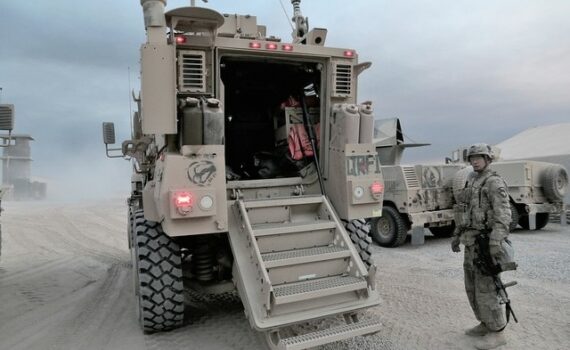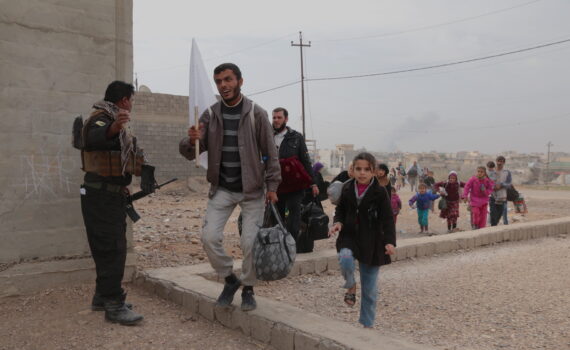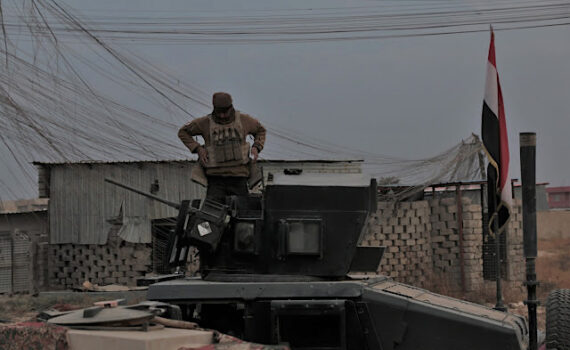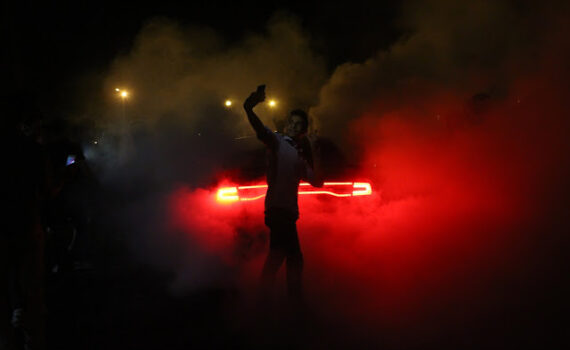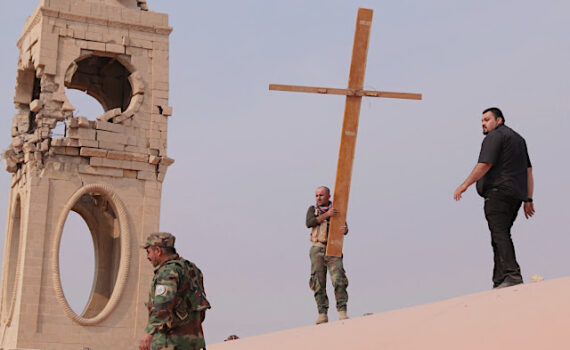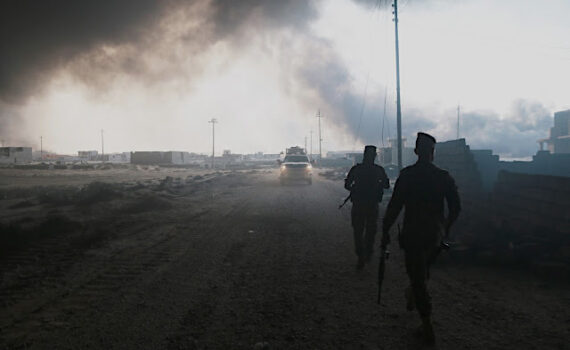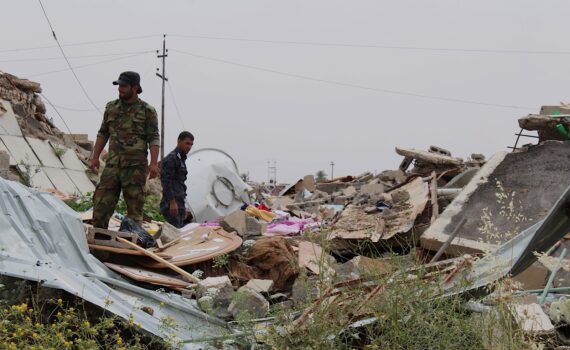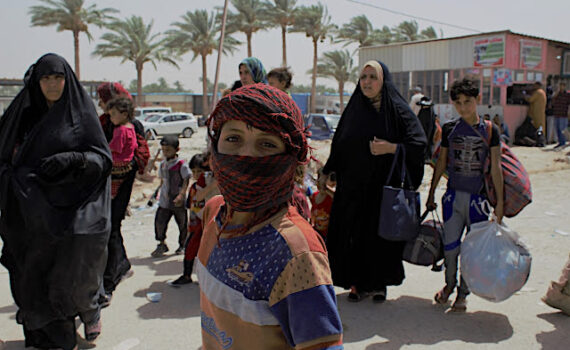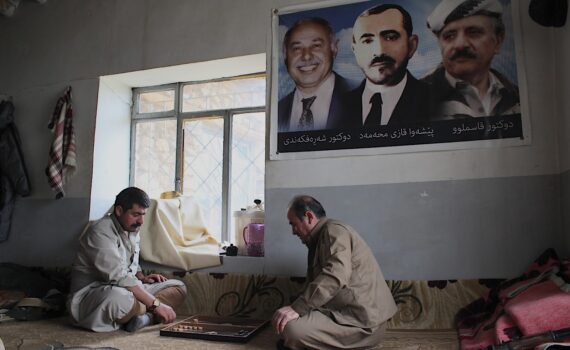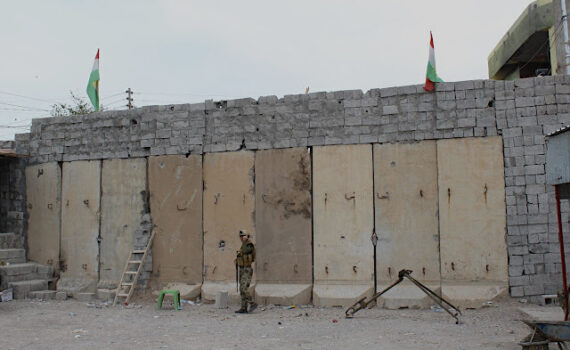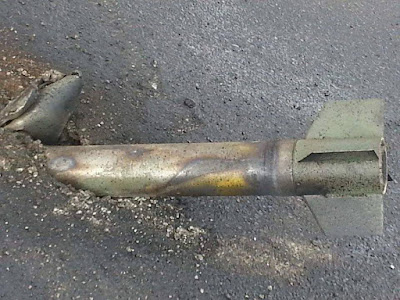As Iraqi forces in Mosul engage in some of the fiercest fighting yet against ISIL, Florian Neuhof takes a look at life inside the Qayyarah Air Field West – a key launching pad as anti-ISIL coalition forces seek to flush the extremists out of their last Iraqi stronghold.
Yearly Archives: 2016
In fight for Iraq’s second city, Iraqi elite forces admit to struggling with IS’s endless supply of mechanised suicide bombers.
Families in liberated parts of Mosul are still exposed to the dangers of war, but fear their suffering will be even worse in the displacement camps which are already beyond capacity.
The site of the ancient city of Nimrud was destroyed and plundered by ISIS, just one of the region’s archeological treasures to fall victim to the terror group.
Once mistrusted, Iraq’s Special Operations Forces have become viewed as heroes for their success in defeating ISIL. Time spent with the Golden Division as they battle to liberate Mosul in their toughest fight yet.
As Baghdad is rocked by deadly explosions and political chaos, “drifting” is an increasingly popular way for young men in the Iraqi capital to let off steam.
ISIS forced the Christians of the Nineveh plain around Mosul to flee. Now they are returning, but in the key town of Qaraqosh, the fighting rages on.
In Qayyarah, a town on the Tigris crucial to the recapture of Mosul, residents celebrate being freed from ISIL but now suffer the health effects from the extremist’s scorched earth policy.
In Bashir, a Shiite Turkmen town recently liberated from the “Islamic State,” tensions that could lead to a new conflict in Iraq are palpable.
The Yazidis have been able to return to their most holy place, but US jets hover overhead and IS militants lurk around the corner.
As ISIL steps up attacks on Shiite areas, capital’s residents put blame on Iraqi politicians seeking to cling to power.
While Iraqi forces fight to dislodge ISIS from the city of Fallujah, displaced civilians languish in desert camps under the searing desert sun.
Gangs of destitute Iraqis pick through dump outside Erbil as the city, once a beacon of prosperity, struggles with economic and refugee crises.
In the bloody battle for Fallujah, ISIS is expelled from the city, the first major reversal for the terror group in Iraq.
With thousands of displaced families in Fallujah escaping the horrors of ISIL, the Kurdish town of Shaqlawa has seen its population swell – yet still welcomes the Sunni Arabs afraid of sectarian hatred in Iraq’s south.
While neighbouring Kurds make headlines, tensions simmer quietly in Iran as an exiled Kurdish group seeks to capitalise on growing discontent.
Many spent thousands of dollars on the perilous journey to Europe only to find themselves on a flight back to Iraq a few months later, their dreams of a better life away from war and upheaval shattered by the realities of the refugee crisis.
While both Iraq’s Kurdish fighters and Shiite militias played a key role in blunting and then reversing ISIL’s surge in Iraq, relations have been shaky from the outset.
Attacks on Sinjar highlight dangers posed by group’s homemade gas-filled weapons with Kurdish fighters ill-equipped to protect themselves.
High rates of female genital mutilation set Iraqi Kurdistan apart from the rest of the country. More than the men, it is the women who keep the cruel tradition alive. One of them has set out to change that.
